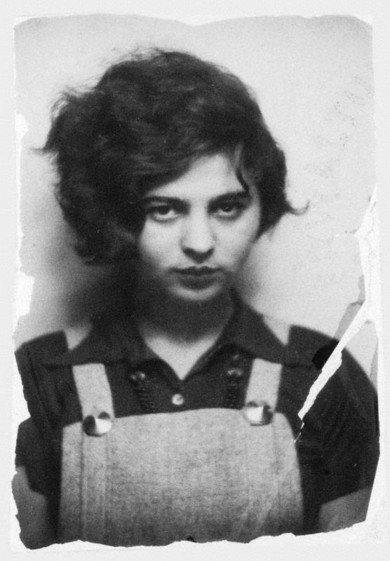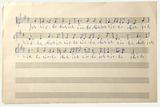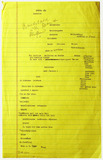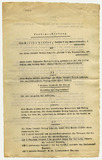Mascha Kaléko
Mascha Kaléko
Haben Sie Dank für […] Ihre ausdrucksvollen Gedichte, an denen ich eine gewisse aufgeräumte Melancholie am meisten liebe. Gewiß haben Sie vielen tausenden aus der Seele gesungen hier draußen; aber ich wollte doch, Ihre wohllautend-mokante Stimme erklänge auch wieder in Deutschland.
[Please accept my thanks for [...] your expressive poems; it is that certain tidy melancholy in them which appeals to me above all. I know you speak for many thousands of people out here; but I wish your euphonious, mocking voice could be heard once more in Germany. (ed. trans.)]
Thomas Mann in a letter to Mascha Kaléko, Christmas 1945
| Born | born on 7 June 1907 in Chrzanów, Austria-Hungary, today in Poland |
|---|---|
| Died | died on 21 January 1975 in Zurich, Switzerland |
| Exile | United States of America, Israel |
| Profession | Writer |
The work of poet Mascha Kaléko was marked by the experience of homelessness and rootlessness. Born the child of a Russian Jewish businessman in Western Galicia (now Poland), she moved to Germany with her family after the outbreak of the First World War to escape anti-Semitic pogroms and military entanglements. Following school and further studies in Berlin, in 1929 Kaléko began publishing her poetry in newspapers. Her first book publication, The Lyrical Shorthand Pad, appeared in Berlin’s Rowohlt Verlag in January 1933, shortly before Adolf Hitler was appointed Reich Chancellor. She was able to issue her Little Reader for the Grown-Ups the following year, and it also sold well.
Even though the writer was already well established in Berlin’s literary scene and creative bohemia, restrictive Nazi cultural policies made it impossible for Kaléko to publish after 1937. Together with her second husband, conductor and musicologist Chemjo Vinaver, and their son Steven Vinaver, she fled into American exile in September 1938. In New York Kaléko supported the family with copywriting.
After the war Kaléko’s books once again appeared in Germany. She was offered the Fontane Prize in 1960 but rejected it because one of the jury members had been in the SS. In 1960 the writer moved to Jerusalem, where she struggled with constant health and financial problems. Mascha Kaléko, who as a German-speaking émigré was continually pained by her separation from her German-speaking homeland, was visiting Europe when she died in Zurich in 1975.
Selected works:
Das lyrische Stenogrammheft (poemns, 1933)
Kleines Lesebuch für Große (poems, 1934)
Verse für Zeitgenossen (poems, 1945)
Der Papagei, die Mamagei und andere komische Tiere (poems, 1961)
Wie’s auf dem Mond zugeht (poems, 1971)
Further reading:
Kaléko, Mascha: Sämtliche Werke und Briefe in vier Bänden. Herausgegeben und kommentiert von Jutta Rosenkranz. München: dtv 2. Auflage 2013
Rosenkranz, Jutta: Mascha Kaléko. Biografie. München: dtv 2012




